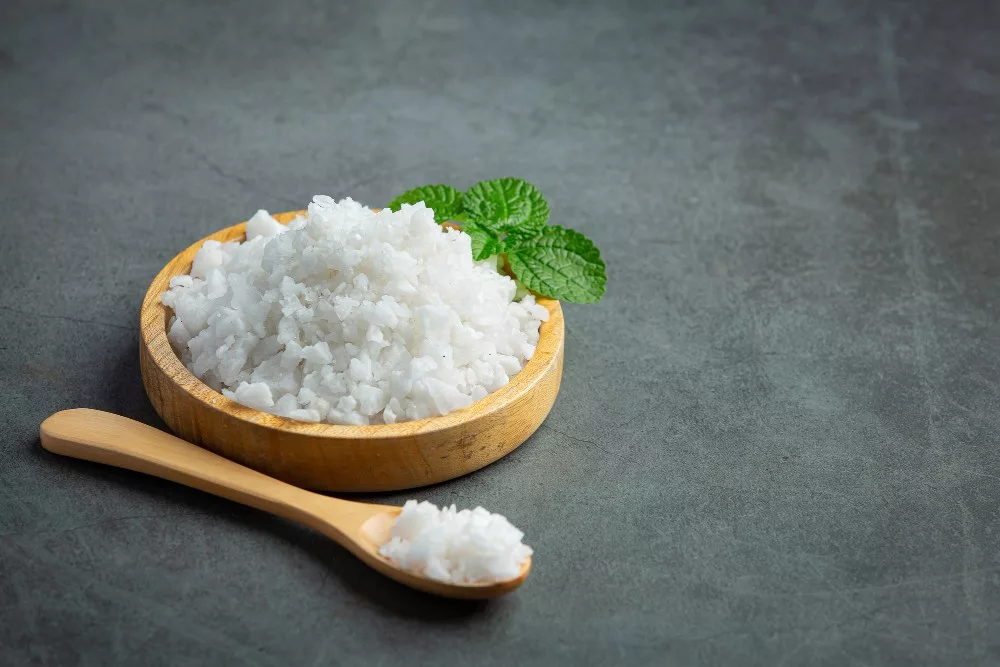Are you dealing with a dry cough that doesn’t let you sleep at night? Do you feel embarrassed to have a persistent cough in front of others? Do you feel restless when you are out and continuously coughing because of dust?
Well, if that is so, then this article is for you. Look no further. In this article, you will explore effective strategies for treating a dry cough, including home remedies, cough medications and explanation about when to seek professional help.
Why do you get Dry Cough?
Do you know why you cough? What causes dry cough in the first place?
Coughing is basically a protective reflex of our body to clear the airway and prevent foreign particles or any type of irritant that is present in the airway to go deep inside the respiratory system.
When any irritant for instance dust, smoke, foreign body, pollen enters the nose and throat, it triggers your sensory receptors. The sensory receptors then give signals to the brain to initiate the coughing reflex to clear the throat.
Although it is a protective mechanism, sometimes it becomes difficult to get rid of this coping mechanism due to hypersensitivity to irritants.
The hypersensitivity in some people makes them cough harder and more frequently to the extent that it becomes an issue to combat the hypersensitivity mechanism.
Causes of cough:
There are a number of factors that lead to coughing including:
- Viral infection
- Bacterial infection
- Fungal infection
- Irritants
- Pollens
- Dust
- Smoke
- Air pollutants
Side effects of certain medications like ACE Inhibitors.
- Asthma
- COPD.
- Bronchiectasis
- Tuberculosis
- Lung cancer etc.
Let’s discuss Asthma a bit since it holds significant importance.
ASTHMA!
Asthma is a chronic airway obstructive disease characterized by hypersensitivity to irritants that in normal individuals or the one who doesn’t have asthma may not show symptoms.
Asthma is often accompanied by coughing. Recurrent cough and bouts of cough occur on and off and when the cough becomes so severe that it leads to shortness of breath, this is an acute asthmatic attack.
In an acute attack, you need a bronchodilator to dilate the airways and control the continuous bout of cough by cough suppressants and syrups.
What are the best at-home remedies for dry cough?
There are some simple home remedies that provide comfort.
Many people use home remedies for dry cough since it’s not easy to get rid of it even after taking medications.
Following are the common at home remedies to get rid of the stubborn cough:
Honey in lukewarm water

Dissolve honey in lukewarm water and drink it. This remedy is commonly used because honey soothes the throat and also has antibacterial properties which helps combat the infection.
Honey and Turmeric

Mix Honey and turmeric and make it into a paste. Have it at bedtime and don’t drink water after this. Turmeric has anti-inflammatory, antioxidant and antimicrobial properties that along with the honey works well for cough.
Table Salt

Take salt and a few cloves and burn it over any pan on high flame. Burn it till the cloves are totally dissolved in the salt and the salt becomes blackish. Take a pinch of it every 5 to 6 hours and do not drink water afterwards. Salt helps with alleviating symptoms of cough and soothes the throat.
Gargles with salt water

Gargles with salt in lukewarm water. This helps in reducing the scratchy feeling in the throat and soothes your throat. This reduces the cough frequency and discomfort.
Ginger Water

Take some slices of ginger, put in a bowl of water and steep it for 5-10 minutes. Then strain it and take that drink at bedtime. This has anti-inflammatory, antiseptic and anti-oxidant properties.
Tea with Honey

Mix some honey in tea or kehwa and drink it after lunch and bedtime. Warm beverages soothes the throat and honey mixed within it give additional benefit in alleviating the symptoms of cough.
Steam Inhalation

Inhaling steam from a bowl of hot water can moisten the airways, helps with throat itching and inflammation. This is very helpful when you have a cough and cold.
Milk with turmeric and Honey

Warm milk with turmeric and honey. Turmeric and honey both have anti-inflammatory properties and when mixed together with warm milk give good results.
Licorice lozenges
Licorice lozenges to reduce inflammation. This helps with dryness and irritation that is felt in coughing. Licorice also has anti-inflammatory properties.
Cinnamon Powder

Add a pinch of cinnamon powder in warm water or tea for relief from throat irritability. Cinnamon has a lot of benefits and among them anti inflammatory and antioxidant properties help in soothing the throat and reducing the cough.
Humidifiers

Adding moisture to the air in your home can ease throat irritation and makes your throat less inflamed.
What home remedies do more harm than good and are based on junk science?
Some people out there like to do self experimentation and self medication and make remedies based on junk science rather than proven methods. For instance:
Giving essential oils:
There are few benefits of essential oils but it doesn’t help with coughing and in fact it may cause more harm than good.
Herbal roots:
While there are few health issues in which herbal roots may work, or alleviate symptoms, not every herbal root is useful for coughing.
Raw honey for infants:
Although honey is good for soothing effect, giving it to children less than 1 year of age is harmful and may cause “Botulism infection”.
Which medications should be used for coughing:
Antitussives: these are cough suppressants that inhibits the cough reflex. Common ingredient include Dextromethorphan.
Expectorants: Expectorants help loosen mucus,making it easier to cough up.
Guaifenesin is one the widely used expectorant.
Antibiotics: If you have high grade fever along with cough then some infection is going on and taking only cough syrups won’t help you unless antibiotics are taken along with it.
When do you seek medical advice?
If you are having a chronic cough which is considered to be more than 6 weeks even after taking over the counter cough suppressants and home remedies, then you should seek expert healthcare advice.
Chronic cough could be a sign of many chronic and serious conditions like:
- Asthma
- Chronic bronchitis
- Emphysema
- TB
- Cystic fibrosis
- Reactive airway disease
- Initial or advanced stages of lung cancer
- Chronic ulcer
There are few danger signs that alarms you to go consult a healthcare provider and take expert help. They are following:
- Persistent cough for more than a few weeks.
- High fever, chest pain or difficulty breathing.
- Coughing up blood or discoloured mucus.
- Any pre existing health condition.
- When you are not getting better after taking over the counter cough syrups.


